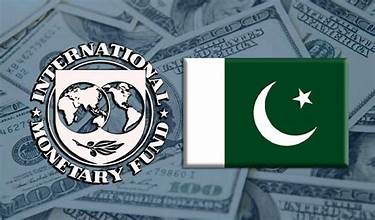The International Monetary Fund (IMF) has long played a pivotal role in shaping the economic landscape of countries struggling with fiscal deficits, external debt, and monetary challenges. For Pakistan, its partnership with the IMF has been both a source of support and a cause of debate. Recently, the release of an IMF report highlighting corruption and governance concerns sparked strong reactions in Islamabad. Pakistan has raised objections to the findings, arguing that the report unfairly portrays its governance situation and undermines its efforts at reform.
This development has ignited discussions about the delicate balance between external oversight and national sovereignty, the complexities of economic governance, and the broader global discourse on corruption and transparency.
Background of the IMF Report
The IMF regularly evaluates governance frameworks in countries receiving financial support, including Pakistan. The report in question raised red flags about corruption vulnerabilities, lack of transparency in public spending, weak accountability measures, and inefficiencies in revenue collection. According to the IMF, these structural issues not only impede Pakistan’s growth but also create hurdles in implementing effective reforms.
The findings touched on sensitive areas such as:
- Alleged misuse of development funds.
- Influence of political elites on fiscal decision-making.
- Ineffective anti-corruption enforcement mechanisms.
- Gaps in procurement transparency and tax compliance.
While the IMF presented these concerns as systemic challenges needing urgent attention, Pakistani officials countered that the report exaggerated the scale of corruption and failed to recognize recent governance improvements.
Pakistan’s Response
Islamabad’s response to the IMF’s report was swift. The government officially expressed reservations, highlighting what it sees as a lack of context and objectivity in the findings. Officials argued that the IMF overlooked several reforms introduced in the past few years, including digitalization of tax systems, efforts to increase transparency in public procurement, and initiatives aimed at strengthening anti-graft institutions.
Key points raised by Pakistan included:
- Overgeneralization of Corruption Issues – The government claimed that the IMF painted a broad picture without differentiating between past practices and current improvements.
- Neglect of Reform Measures – Pakistan emphasized that reforms such as the Public Finance Management Act, e-procurement systems, and digital tax collection tools are evidence of progress.
- Impact on Investor Confidence – Officials warned that such negative portrayals could discourage foreign investors, further straining the economy.
- Sovereignty Concerns – The government questioned whether it was within the IMF’s mandate to issue corruption reports that tread into political and governance territories.

Historical Context of IMF-Pakistan Relations
Pakistan’s relationship with the IMF spans decades, marked by repeated bailouts, structural adjustment programs, and conditional lending. Corruption and governance have often been contentious points in these engagements. Critics argue that while IMF programs impose strict fiscal targets, they often fail to address deeper structural and institutional weaknesses.
For Pakistan, this cycle has created a dependency that leaves it vulnerable to external scrutiny. The IMF’s latest focus on corruption brings to the surface long-standing debates: is the IMF genuinely helping Pakistan reform, or does it impose external narratives that disregard local realities?
Pakistan Raises Objections to IMF Corruption Findings
The Governance Dilemma
Governance in Pakistan is indeed a complex matter. Successive governments have grappled with corruption scandals, political patronage, and weak institutions. Yet, it is also true that efforts have been made in recent years to address these shortcomings. Initiatives like digitization of government services, improved procurement regulations, and judicial actions against corrupt practices demonstrate progress, albeit gradual.
By highlighting corruption as a central problem, the IMF underscores the risks it poses to economic recovery. However, critics in Pakistan argue that the report fails to consider the broader socio-political environment where reforms take time to yield results. They contend that external evaluations should complement, rather than discredit, domestic reform agendas.
Implications for the Economy
The fallout from this controversy is not just about words on paper. The IMF’s corruption findings can have real economic consequences:
- Investor Perceptions – Reports of widespread corruption may deter foreign investors, who already weigh political and economic risks before committing capital.
- Public Trust – Domestically, such reports can fuel cynicism about the government’s performance, potentially widening the gap between citizens and institutions.
- Loan Conditionalities – Future IMF programs may attach even stricter conditions tied to governance reforms, making it harder for Pakistan to negotiate flexibility.
- Reform Momentum – On the flip side, external criticism could push Pakistan to accelerate reforms, if managed constructively.

The Debate on Sovereignty vs. Accountability
A central theme in this episode is the tension between sovereignty and accountability. Should an external financial institution have the authority to critique internal governance mechanisms? For many Pakistanis, the IMF’s intervention crosses into political territory, challenging the autonomy of domestic institutions.
On the other hand, advocates argue that accountability is inseparable from economic stability. Without tackling corruption, no amount of financial aid can stabilize the country’s finances. Thus, the IMF sees governance critiques as integral to ensuring that its support yields long-term results.
Way Forward for Pakistan
Moving forward, Pakistan faces the challenge of addressing corruption concerns while safeguarding its national image and sovereignty. A few key steps could be instrumental:
- Strengthening Institutions – Empowering anti-corruption bodies and ensuring their independence can address both domestic and international concerns.
- Enhancing Transparency – Expanding digital platforms for taxation, procurement, and service delivery can reduce opportunities for corruption.
- Engaging Constructively with IMF – Rather than dismissing the report entirely, Pakistan could engage with the IMF to highlight its progress while acknowledging areas needing further work.
- Improving Public Communication – The government should communicate reforms effectively to build trust both domestically and internationally.
- Balancing Oversight with Sovereignty – Pakistan must negotiate terms with the IMF that respect its autonomy while committing to measurable reforms.
Conclusion
The IMF’s corruption findings and Pakistan’s objections highlight the sensitive intersection of economics, politics, and governance. While external critiques can feel intrusive, they also shed light on areas where improvement is essential. For Pakistan, the challenge lies not only in rebutting unfavorable narratives but also in demonstrating tangible progress that speaks louder than reports.
Ultimately, sustainable economic growth and financial independence will come from stronger institutions, greater transparency, and political will to tackle corruption head-on. By doing so, Pakistan can move beyond reactive responses to external evaluations and build a governance framework that inspires confidence at home and abroad.



